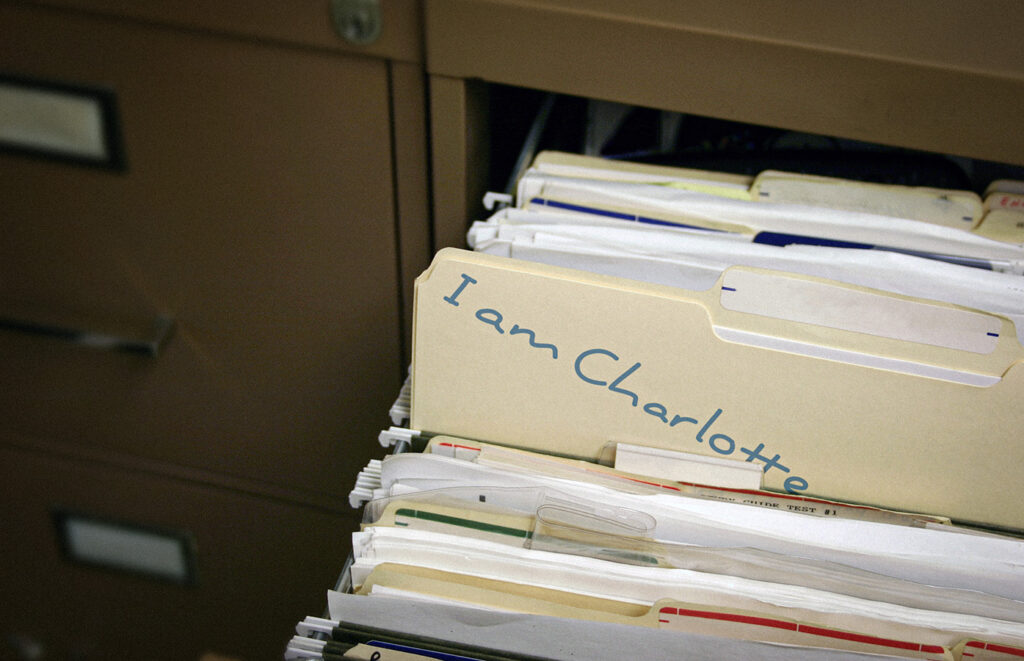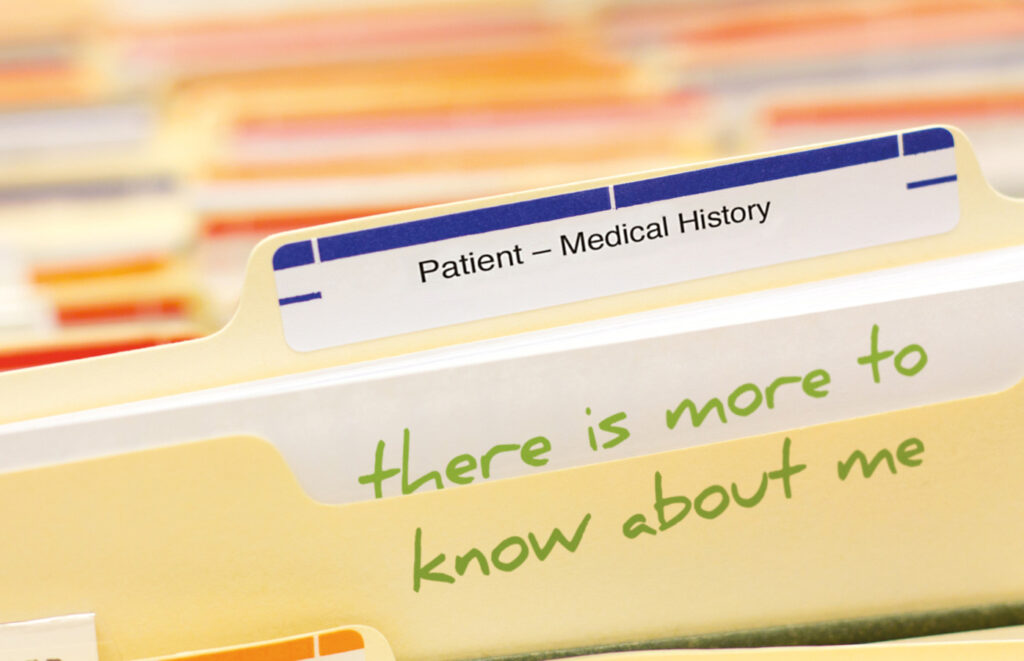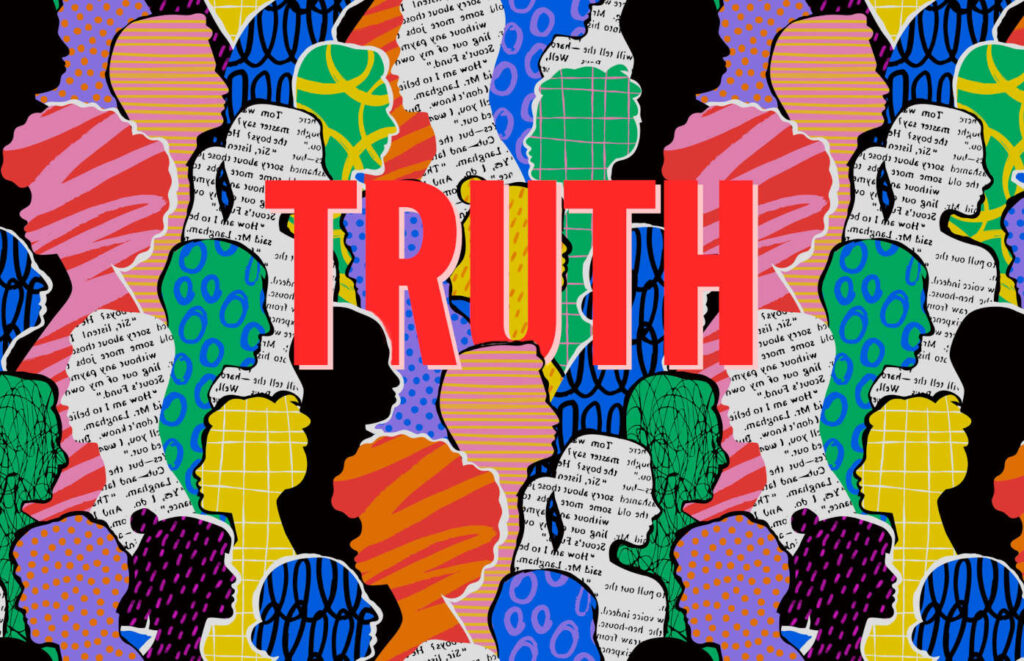Charlotte’s story
“That’s what’s happened ever since [the diagnosis.] All my extreme moods and issues ignored. No investigations and no answers. I have lost hope regarding the mental health team helping me. I just hope something else will help.”

I have struggled with my mental health since I was 11. I have had many diagnosis but mainly have been treated for an eating disorder, because of this most of the diagnosis were ignored. it felt like it only mattered about my physical health and keeping me alive. I had been in and out of hospital for 10 years plus and thought I would never get out of that cycle.
I was admitted to a psychiatric ward, which did not know how to treat me. There was some amazing staff there and some not so good. But it was all about feeding and weight, not how I was feeling. If I showed emotion and distress then it would all be about finding some more medication to put me on. I left there medicated to the eyeballs. That medication didn’t work on me, and though my new team were very shocked about the amount of medication I was on when I left the hospital, it was going to be a long process to bring me off those meds.
I knew the diagnosis of BPD was associated with attention seeking, which is so wrong.
The plan was to reduce one medication at a time, and as you can imagine this took a lot of time. During this time I really struggled mentally, my emotions were everywhere, I knew there was something wrong with me. I have always known. So I talked to my main eating disorder support worker and I had done some research. I thought I potentially had BPD. I didn’t care what diagnosis I got I just wanted to understand myself, though I was worried because I knew this diagnosis was associated with attention seeking. Which is so wrong, and really unfair on the people that have it.
She referred me and I got an appointment with a psychologist. I saw him around 5-6 times for an hour each time. I also filled in two 100 page questionnaires, all around moods, feelings and emotions, et cetera. The final week I spoke to the psychologist and he stated that I do not have a personality disorder. He stated that I have traits of it, which most people do, but he did not diagnose me with BPD as he did not believe I had it.
I didn’t know whether to be disappointed or happy. Disappointed, because I wanted to know what was wrong with me, and it was another thing that was explored that didn’t tell me why I am the way that I am. And happy because obviously I don’t want to have a personality disorder. I would rather have no disorders to be totally honest, who wouldn’t?
For the first time, I saw that I had been diagnosed with Emotionally Unstable Personality Disorder 4 months earlier. I didn’t know and no-one had told me.
Fast forward, to years later, I’ve been out of hospital for 7+ years and have so much going on in my life. But I struggle daily. So, I still had regular psychiatrist appointments about my medication etc. I went to a certain appointment and it was a different doctor, he introduced himself and told me he had met me a few years ago. I have met many doctors so I had no clue who he was, I actually thought he was maybe being assessed by my usual psychiatrist, who was sat next to him. He asked me questions about my life and asked if I knew what EUPD was. I explained that I did and I know I have traits of it. Not much more was said about it, and it was back to the usual questions about family history, mental health history and how I feel. The meeting ended and nothing much was said and done.
Again, fast forward around 4 months. I needed some evidence of my diagnosis for a form I had to fill. I read the list and for the first time, I saw that 4 months ago I was diagnosed with EUPD. I didn’t even know, no one had told me and I wasn’t getting any treatment for it. I was really annoyed, I think everyone deserves to be told their diagnosis. Surely a doctor wouldn’t keep it a secret that someone has a broken arm, a disease that will affect their life or dodgy lungs. These things are all serious physical issues but why are mental issues not treated the same.
I honestly don’t care about the diagnosis itself. I just want answers.
When I did tell the psychiatrist about this, his response was “ well, I’ve known people with that diagnosis who haven’t known they have it for 10 years plus”. I felt like screaming “I’m talking about me, I don’t need you putting down the fact that I was not told my diagnosis”. I am an emotional person, I have questioned a great deal that could be wrong with me. I honestly don’t care about the diagnosis itself, I just want answers.
I have since been diagnosed with ADHD. The NHS mental health team assessed me and said I don’t have ADHD. So I paid privately for an assessment as I knew I had not been assessed properly, having seen the diagnostic tool that should be used, I then got diagnosed privately. I do not know if this will change my EUPD diagnosis, I have never really accepted the diagnosis and don’t write it on forms, because I think they just threw it on me because I wanted them to look more into me and what’s going on in my head.
BUT that’s too hard, “we will just slap an EUPD diagnosis on her and then everyone will ignore her issues because she will be seen as an attention seeker”, that’s how I feel I was “dealt with”. That’s what’s happened ever since, all my extreme moods and issues ignored. No investigations and no answers. I have lost hope regarding the mental health team helping me. I just hope something else will help.
Speak your truth: your own experiences can help create change
If you want to share your experiences around this diagnosis you can take part in Platfform’s Truth Project.
Platfform are campaigning for a review of the use of the diagnosis of PD. Add your voice to our call for change by sharing your story. We will share these with Welsh Government and use them to strengthen our campaign.
For more information, and to access the survey, click here.
If you are in a mental health crisis, please read this paragraph
If you have been affected by anything in this story and would like to talk to someone you can call Samaritans on 116 123. You can also call the national mental health support line for advice on 111 (press 2.)


